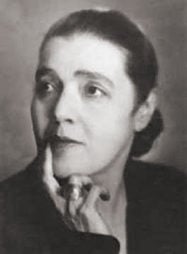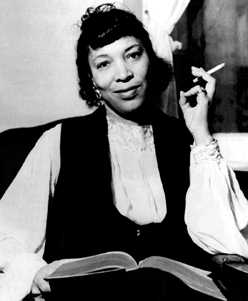Zora Neale Hurston & Fannie Hurst: A Literary Friendship
By Emma Ward | On March 18, 2017 | Updated August 21, 2022 | Comments (0)

Zora Neale Hurston, the American novelist, memoirist, and folklorist was an active member of the Harlem Renaissance, an era of flourishing art and literature created by the Black community in New York City.
Fannie Hurst, her contemporary, was an author who supported social equality causes, and became sought after for her short stories.
Hurst was incredibly successful as a novelist and story writer in the 1920s and 1930s, becoming one of the era’s top-earning authors. Through a strange twist of fate that Zora, who was virtually forgotten when she died in 1960, is now a revered, widely read, and studied American author while today Hurst is rarely read and little known.
Fannie Hurst and Zora Neale Hurston met at Opportunity Magazine‘s first literary awards banquet in May, 1925. At this event sponsored by the National Urban League, Hurst presented Hurston with prizes for her short story, “Spunk,” and her play, “Color Struck.”
The friendship took root at a party following the banquet where Hurston was introduced to Annie Nathan Meyer, founder of Barnard college, and Carl Van Vechten, who would later take iconic photographs of her.
. . . . . . . . . .
Zora Neale Hurston Quotes and Life Lessons
. . . . . . . . . .
Assistance and employment by Fannie for Zora
After displaying her potential, Hurston was offered the opportunity by this group to finish her degree at Barnard in addition to financial assistance and employment. Due to Hurst’s success within the literary world, she brought its privileges to those she interacted with.
While historical accounts are thin, it’s acknowledged that Zora worked for Hurst as a secretary and chauffeur in order to make ends meet while completing her education.
The politics of identity
Hurst was known for being racially conscious but perhaps for reasons that reinforce her whiteness as a Jewish woman, according to her biographer, Robert Hemenway.
For example, her novel Imitation of Life explores life as a Black woman named Peola. Hurst was able to channel the childhood shame of being a part of a marginalized community through another American identity she could relate to. Both Fannie and Zora wrote about their marginalized identities and oppression as an underlying tone in their stories.
Exploring how Jewish women navigated racial boundaries and developed working-class solidarity with Black women, Kahan notes the fascination and mimicking of Black culture that were apparent in Hurst’s novel Imitation of Life.
. . . . . . . . . . .

Fannie by Brooke Kroeger — a biography
. . . . . . . . . .
Zora on her friendship with Fannie Hurst
Here’s what Zora had to say in chapter “The Inside Light — Being a Salute to Friendship” in her autobiography, Dust Tracks on a Road, 1942:
“Both as her secretary and as a friend, Fanny Hurst has picked on me to my profit. She is a curious mixture of little girl and very sophisticated woman. You have to stop and look at her closely to tell which she is from moment to moment. Hr transitions are quick as lightning and just as mysterious. I have watched her under all kinds of conditions, and she never ceases to amaze me.
Behold her phoning to a swanky hotel for reservations for herself and the princess Zora, and parading me in there all dressed up as an Asiatic person of royal blood and keeping a straight face well the attendance goggled at me and bowed low!
Like a little girl, I have known her in the joy of a compelling new gown to take me to tea and some exclusive spot In New York … on the spur of the moment she has taken me galloping over thousands of miles of this North American continent in my Chevrolet for a lark, and then just as suddenly decided to return and go to work.
In one moment after figuratively playing with her dolls, she is deep in some social problem. She has been my good friend from many years, and I love her.”
. . . . . . . . . .
A 1934 interview with Zora Neale Hurston
. . . . . . . . . .
More about the friendship of Zora Neale Hurston & Fannie Hurst
- Hurst & Hurston
- Hurston and Hurst: Setting the Record Straight
- My You: Fannie Hurst, Zora Neale Hurston and Literary Patronage
- Interview with Lori Harrison-Kahan
- Fannie: The Talent for Success of Writer Fannie Hurst


Leave a Reply